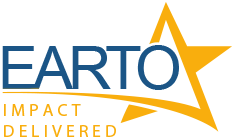28 / 07 / 2022
EARTO Position Paper on Current Hurdles to Mobility of Researchers
In 2019, EARTO already pointed out in an open letter the high bureaucratic requirements that exist due to EU Regulation 883/04/EC, the Enforcement Directive 2014/67/EU on the EU Posting of Workers Directive and due to the implementation of the EU Posting of Workers Directive 2018/957/EU. EARTO made suggestions to significantly improve the situation. Unfortunately, as of today, the situation has not improved, instead it worsened. EARTO points out that if those hurdles are not treated carefully, they will hinder the European efforts to increase international researcher mobility, the strengthening of the European Research Area and the success of mobility instruments within the EU RD&I Programme Horizon Europe.
EARTO specifically addresses and brings further recommendations regarding the following issues:
- Clarification and Amendment are needed regarding A1 forms for business trips (EU Regulation 883/04 and 987/09): business trips should not be considered postings, this clarification is essential. This will facilitate the process for RTOs to send researchers to other Member States for business trips by reducing the immense administrative burden linked to the A1 form.
- EU notification requirements and Equal Pay principle (directives 2014/67/EU and 2018/957/EU): If a complete elimination of EU notification requirements within the EU is not possible, then uniform, standardized framework conditions throughout the EU regarding the notification requirements, as well as centrally retrievable information in the key European languages regarding the respective notification requirements are indispensable. We therefore strongly suggest the publication of a clear interpretation note that will guarantee a consistent and uniform understanding of the difference between business trip and posting as well as the exemption of short duration business trips for up to 14 days from the need to apply for an A1 form. Furthermore, we request the exemption of any notifications obligations and of the requirements regarding the principle of Equal Pay in general for the research sector.
- Remote work from abroad: A new regulation on the part of the EU is needed in order to extend the regulations in Regulation (EU) 883/2004 on the coordination of social security systems to the effect that the social security regulations of the employer’s country of domicile continue to apply to a home office activity even after the pandemic from another EU Member State. In addition, massive efforts are needed at international level on tax law: hiring researchers working permanently remotely in another EU Member States should not be seen as the equivalent of setting-up a permanent establishment by the employer in this Member States.
- Recognition of residence permits for mobile researchers: EARTO calls the EU Member States to implement the agreed procedure of the directive 2016/801 and to recognize a relevant residence permit issued by another Member State for a researcher without having to apply again for a second residence title for their own state. Without this, the European Charter & Code for Mobility of Researchers developed within the European Research Area, especially on the points “Valuing Mobility” as well as “Recognition of Qualifications” will not be met if such hurdles are not removed by a better implementation of the directive 2016/801 by EU Member States.
We hope that EU Institutions will take during the revision of the EU social security coordination rules, on the implementation of the Directive on posting of workers (notification requirements and equal pay) as well as on the rules and regulations around mobile work / home office abroad and residence permits for mobile researchers. EARTO and its HR Experts remain ready to provide additional input on this topic and are available for further discussion with EU institutions to ensure a successful pan-European mobility of researchers.
Read the full EARTO Paper on Current Hurdles to Mobility of Researchers

